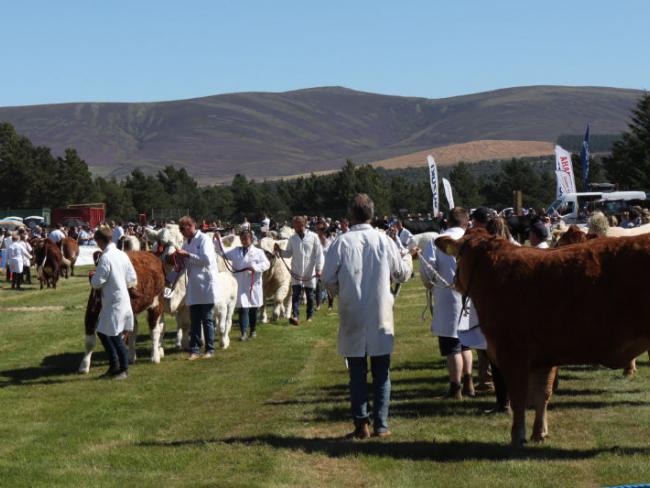21 February 2024

Scotland’s economy is not all about tourism. Farmers parading their prize cattle at Grantown Show in the Cairngorms National Park. Photo Workers.
In Scotland, farmers have won a significant victory in the Britain-wide struggle for survival and for food production. Under the guise of aiming for net zero, farmers and their work have been marginalised.
But things are changing. Scottish farmers are starting to make their voices heard – like others across Britain and in Europe.
Divisive
In 2018, Michael Gove, then agriculture minister, announced divisive plans to redirect public money away from farmers and towards “public goods”. By that he meant environmental issues – a policy also adopted by the Welsh and Scottish devolved governments.
Farmers in Scotland have been taking action to demonstrate their alarm. In Ballater, in Scotland’s Cairngorms National Park, farmers and land managers attended a meeting on 24 January.
Protests
Around 20 tractors filled the streets of the Royal Deeside village. They were protesting against the SNP/Green coalition’s rural policies, warning that its green agenda will “bankrupt the industry”.
Placards read “Don’t greenwash away rural workers’ jobs”, and “Support crofters and farmers”. Local farmer Sandy Tulloch said it was “the culmination of people being sick to the back teeth of being pushed into a corner. Enough is enough.”
Opportunity
Seeing an opportunity to diverge from the British government, Scottish first minister Hamza Yousaf announced a change of direction to the spring conference of the National Farmers Union Scotland on 9 February.
The agricultural sector is important in the Scottish economy and Scottish farmers are a powerful lobby. The SNP is quite rightly wary of them – though until now that has not prevented it from adopting the polices the farmers object to.
Precedent
Yousaf said that 70 per cent of future support for farmers will be direct payments for growing food. That is less than the 80 per cent of direct payments in place until 2027, which would have reduced anyway. But it’s a victory for Scottish farmers and farmers in Britain as a whole and sets a good precedent.
This change secures continuing support to grow food. The transfer to environmental projects has been largely postponed. Farmers’ organisations are not opposed to a shift over time toward more support for environmental projects, but they say a “cliff edge” change would be disastrous for their livelihoods.
